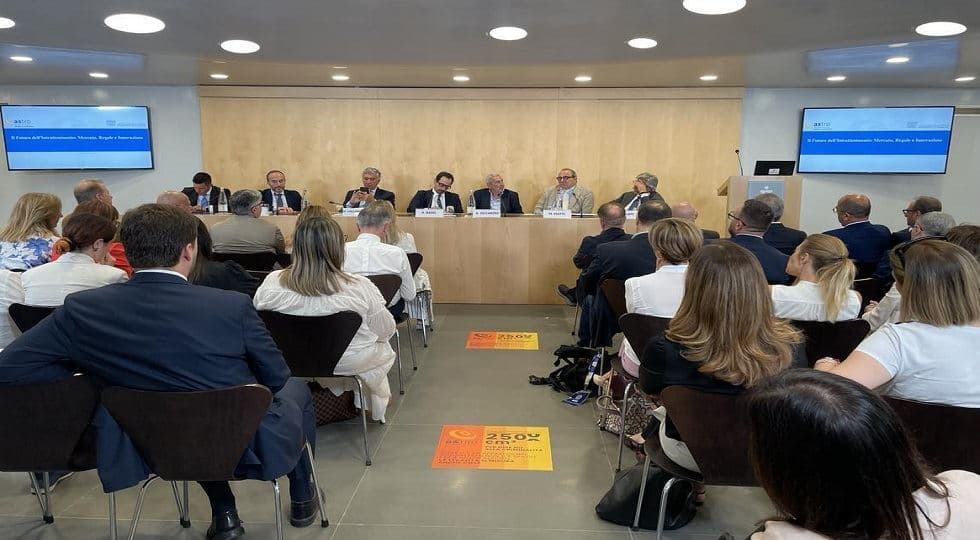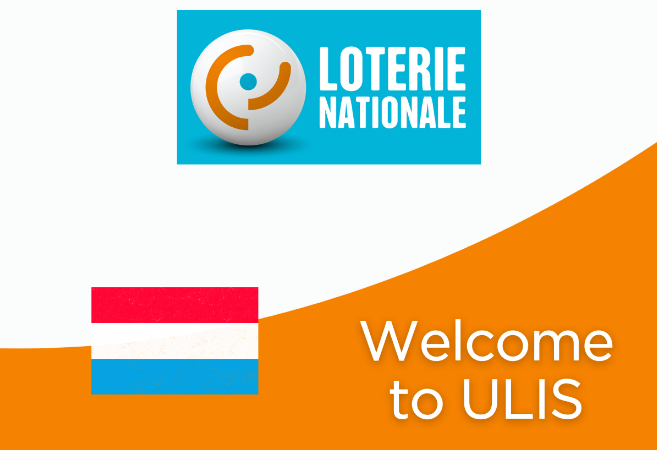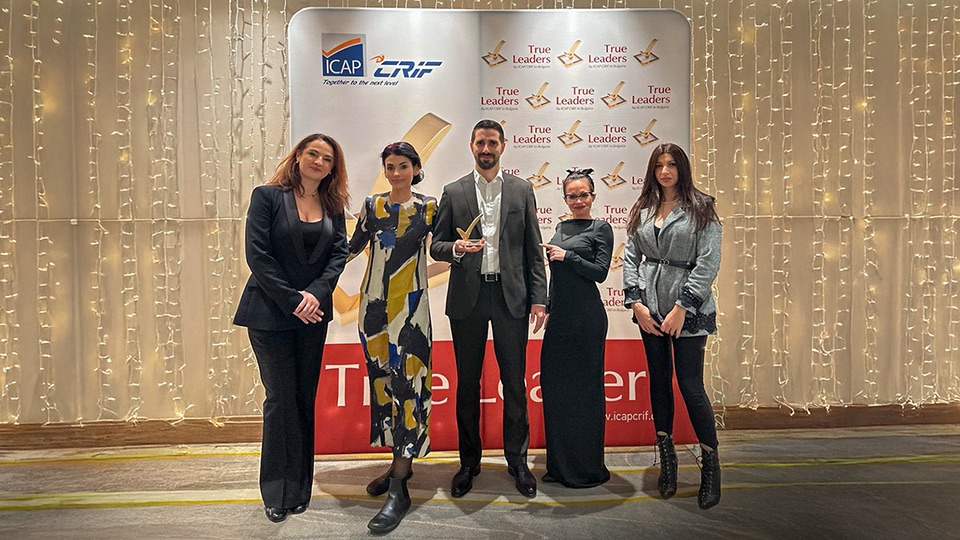At the conference ‘The Future of Entertainment: Market, Rules, and Innovation’ organized by As.Tro, data on AWPs and VLTs from CGIA Mestre and a communications campaign with Cui Prodest on safe gaming were presented.
This morning, July 17, the conference “The Future of Entertainment: Market, Rules, and Innovation” was held in Rome. It was organized by As.Tro Confindustria Sit, Network Concessionaires section, which includes Cirsa, Codere Network, Netwin, and Nts. The conference was coordinated by Marco Zega, Director of Institutional Affairs and Business Development at Codere Italia Spa, and moderated by Andrea Bassi, journalist for Il Messaggero. The meeting aims to disseminate the analyses conducted by CGIA Mestre on the gaming sector in Italy, with a specific focus on AWP and VLT machines, and to present the “2500cm of Legality” communications campaign promoted by As.tro in collaboration with Cui Prodest. A year later, we’re back here analyzing data and commenting on the state of the industry. In a year, there’s been nothing new on the physical reorganization front. It’s being talked about everywhere, the alleged proposals and hypothetical responses are being commented on, but in reality, we’re right back where we started. The data we’re presenting today, thanks to the valuable work of the Mestre-based CGIA, depicts an increasingly challenging situation for the ADI sector, with a clear decline in collections and consequently in revenue. No solution is on the horizon, despite ongoing discussions between the Regions and the State to find a solution that’s sustainable for everyone: operators and civil society. Meanwhile, however, gaming revenues in general are growing, with online gaming continuing to thrive, while the treasury is suffering. It’s natural to wonder whether this constant delay is due to a determined desire to avoid taking on the responsibility of providing a definitive and future-proof structure for public gaming. However, we optimistically believe that this time isn’t passing in vain, but is simply the time needed to achieve the best possible reorganization,” comments Marco. Zega, Director of Institutional Affairs and Business Development at Codere Italia Spa, opened the conference. “Every phase of renewal and transition requires the right amount of clarity from those involved in the change, a knowledge of the subject matter that is often ensured by numbers. Numbers, however interpretable, define the essential parameters for any decision. And, if historicized, they provide essential data for any type of narrative,” said Armando Iaccarino, Director of the As.Tro Confindustria Sit Study Center. “This is the contribution we aim to make, with the valuable assistance of the Mestre CGIA, at today’s event. Using numbers, we aim to understand the context within which the renewal process takes place and what could emerge from it.” The data show a still partial recovery compared to the pre-Covid period, with conflicting signals from collections, the treasury, and local presence.
MARKET CONTRACT: 30 PERCENT INCOME DROP IN 5 YEARS – In 2024, total revenue from AWPs and VLTs reached €32.6 billion, a 30 percent decrease compared to 2019. Revenues for the state also decreased by 22 percent over the same period, while the supply chain margin shrank by 17 percent, reaching €2.95 billion. The comparison with 2023 shows a further decline of -3.3 percent in revenues and -4.6 percent in tax revenues.
DECREASING NUMBER OF MACHINES: OVER 25,000 DISAPPEARED SINCE 2019 – The number of AWP machines decreased from over 263,000 in 2019 to 246,663 in 2024 (-6.3 percent), while the number of establishments hosting them decreased by 14.4 percent, from 58,472 to 50,067. In the VLT sector, the number of machines decreased by 11 percent, but the number of machines is expected to increase slightly in 2024 (+1.1 percent compared to 2023), a sign of a rationalization of the sector and an increase in the average size of the machines (12.6 VLTs per establishment versus 10.7 in 2015).
GENERALIST BUSINESSES ARE LOSING GROUND – The reduction in machines installed in so-called “generalist businesses” (bars, tobacconists, restaurants, newsstands, etc.) is particularly significant: compared to 2019, over 15,000 AWP machines disappeared in this channel in 2024, with the closure of over 9,000 outlets. Bars were the hardest hit, with a 21 percent decline.
THE SECTOR’S MARKET IN LEGAL GAMING: DECREASING BUT STILL SIGNIFICANT – Despite the decline, the AWP-VLT sector generated €5.2 billion for the Treasury in 2024, corresponding to 45.6 percent of total legal gaming revenue, down from the 59.4 percent recorded in 2019. This loss to the state coffers, compared to the pre-pandemic period, is co, amounts to €1.4 billion.
ONLINE GAMING ON THE GROWTH, PHYSICAL GAMING IN RETREAT – The analysis shows how the growth of online gaming has offset the losses in the physical sector. Indeed, excluding AWPs and VLTs, legal gaming revenues grew by 95 percent between 2019 and 2024, while gaming machine revenues decreased by 30 percent. Today, gaming machines represent only 21 percent of total revenues, compared to a majority share until 2016.
A INDUSTRY IN THE PROGRESS – The picture that emerges from the report is that of a sector undergoing profound transformation, marked by a structural contraction of the physical channel and a growing shift toward online gaming. The challenge for the future will be to ensure the sustainability of the sector while safeguarding public revenues and employment levels. Marco Piatti, an expert industry analyst and CEO of Prisma Spa, offers an important overview: “Gaming entertainment is undergoing a profound transformation characterized by contrasting dynamics that reflect the specific challenges of the Italian context, including market structure, regulatory and legislative complexities, and evolving consumer habits and player preferences. The definition of a clear and consistent regulatory framework for the retail sector, resulting from the most effective synergies between regulators and the industry, is essential to the implementation of innovative gaming and gaming governance solutions to guide the sector on an economically and socially sustainable path.”
Based on the highly relevant discussions between operators and manufacturers regarding technological innovation, especially for the protection of vulnerable groups, Gennaro Parlati, president of Acmi/Confindustria SI, reiterates: “Clear and consistent rules, trained operators, and an innovative and safe gaming offering. These are the challenges the entertainment sector will face in the coming months, a fundamental reform focused on consumer protection, tax collection, and corporate sustainability, a fundamental and imperative step for which industry operators have long been ready.” Furthermore, As.Tro, always attentive to issues of legality and responsibility, is today launching its first communications campaign aimed at all relevant stakeholders: from decision-makers to players, with the aim of clarifying some key concepts that the public sector of the Gaming Industry Associations (ADI) has long been committed to.
The campaign was developed in collaboration with Cui Prodest and included the development of a dedicated website www.centimetridilegalita.it and a series of cards that will promote, among other things, the key concepts of responsibility, legality, and player protection—key concepts on which the legal gaming sector is founded. Giuseppe Volpe, managing partner of Cuiprodest and creator of the information campaign presented today by As.Tro, clearly expressed his thoughts: “The ‘2,500 square centimeters of legality’ campaign aims to reclaim a simple but sometimes overlooked concept: the space occupied by a slot machine or any other legal entertainment device is a legal space, granted under concession by the state and supervised by the authorities. If left empty, with constant demand for gaming, it would leave room for illegal activity.”
Senator Massimo Garavaglia, president of the 6th Finance and Treasury Committee of the Senate, who had confirmed his availability to attend the event, was held back due to chamber commitments. The full survey “Study Path on the Gaming Sector in Italy,” now in its fifth edition and conducted by the Cgia Mestre Research Office, will be presented in its entirety at retail and online on October 16th at Palazzo Wedekind.







